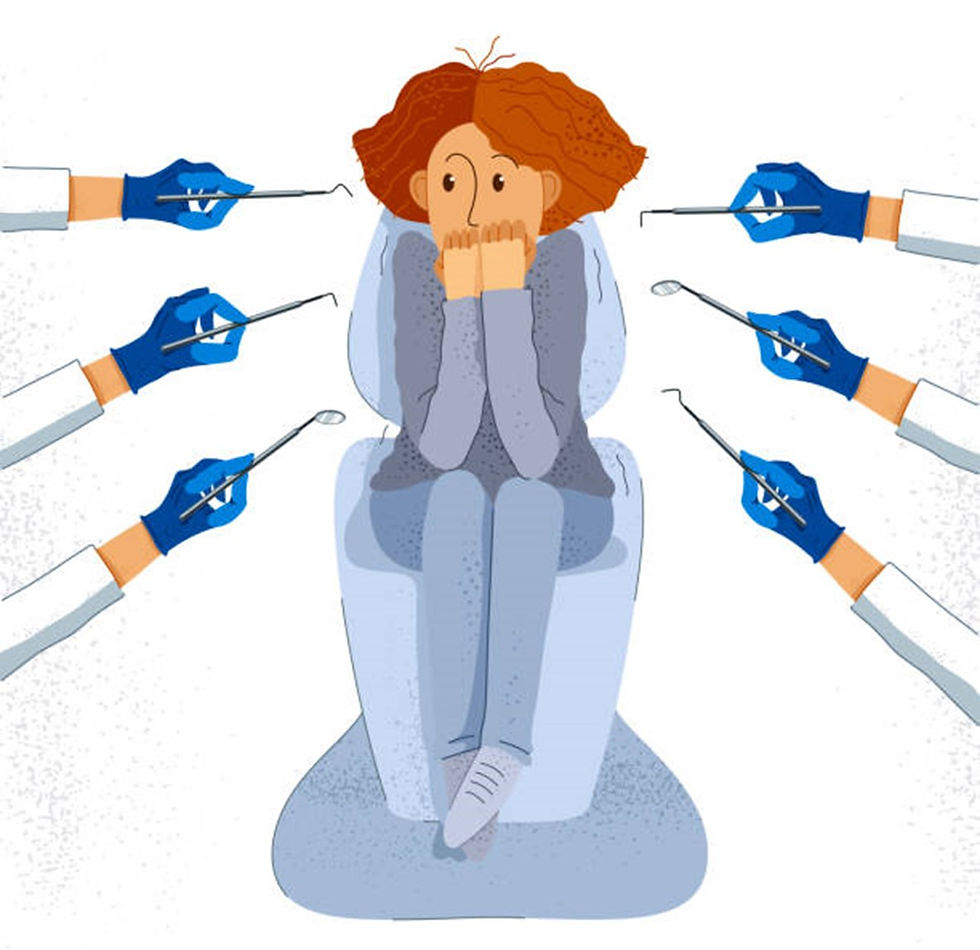How to Prevent First Job Burnout
- Therapyhere
- Apr 3, 2024
- 3 min read

Starting your first job can be exciting but can also be overwhelming. You are keen to impress, pass the probationary period, get that first pay rise and be promoted. You are driven, focused and determined to succeed in this job. However, as a result of this drive and fear of failure, you keep working harder and longer hours without taking breaks and time-off. Exhaustion sets in, you are unable to focus properly, mistakes creep in and dread replaces motivation. You feel depleted. If this goes on for an extended period of time, your emotional, mental and physical health are affected. This is burnout.
Burnout is a state of physical and emotional exhaustion as a result of constantly feeling swamped at work and is a collection of symptoms. Common signs are exhaustion, lack of motivation, feeling hopeless and cynical, anxious, irritable, sleeping difficulties and feeling overwhelmed. The negative effects of burnout can affect other areas of your life such as family, home and relationships and so it is important to seek help for it as soon as possible and to be aware of how to prevent it.
According to Mental Health UK, 20% of workers have taken time off work due to stress-related mental health issues in the past year; 34% of who were aged 18–24 compared with 15% aged 55 or over. This highlights a growing concern that burnout is impacting younger generations. As young adults start on their careers and enter the workforce, prioritising well-being is crucial.
So here are some helpful tips to help prevent first job burnout:
1. Manage your workload. Discuss workload expectations with your manager, pace yourself and make changes to it to avoid feeling overwhelmed.
2. Improve work-life balance. Set times for starting and finishing work each day, resist checking e-mails after work and turn off your laptop in the evenings. Consider remote working for extra flexibility.
3. The power of ‘no’. Be confident to say no if you already have a full workload. Saying no is empowering and sets boundaries with your boss.
4. Prioritse self-care. Take regular exercise (a 10 minutes walk can improve your mood for hours) and get enough sleep (it is vital for physical and mental health). Eat healthy and well-balanced meals; limit sugary and carbohydrate-rich snacks as these lead to a crash in mood and energy. Keep hydrated.
5. Take breaks. Schedule breaks throughout your workday; use your full lunch break, take walks, grab a coffee with a colleague and don't forget to use your holiday days for a holiday!
6. Be honest and open. Talk openly to your boss or work colleagues about your workload; share how you are feeling.
7. Organise your workload. Break down large projects into smaller, maneable steps and make to-do lists to stay organised. Limit multi-tasking.
8. Unwind with a hobby. Pursue a new hobby in the evenings or revisit an old favourite, something that has nothing to do with work. Spend time on activities that energise you.
9. Be kind to yourself. Recognise the signs of burnout and seek help. Listen to your body and mind and address any issues before they escalate.
10. Get professional support. If you are struggling with burnout, reach out for help. It is important to not suffer alone and get overwhelmed by how you are feeling. Remember that asking for help is a sign of strength and courage.
For further help and coping strategies, please click here to arrange an initial FREE 15-minute telephone call with me or e-mail directly alison@therapyhere.co.uk.




Comments